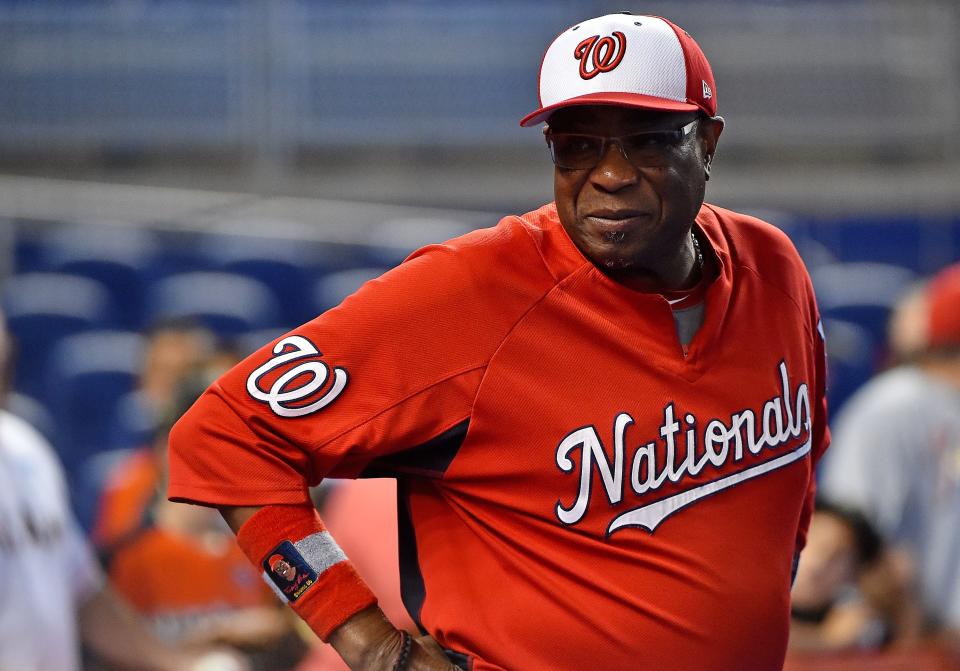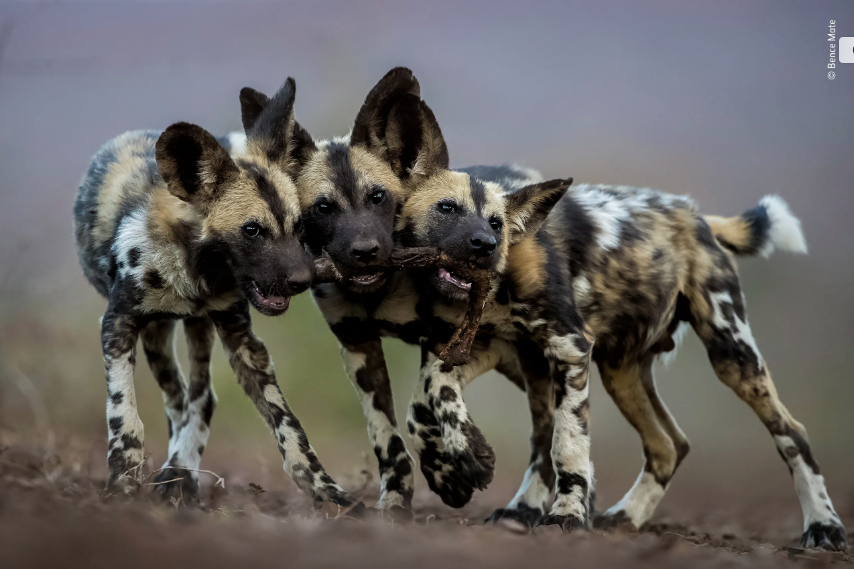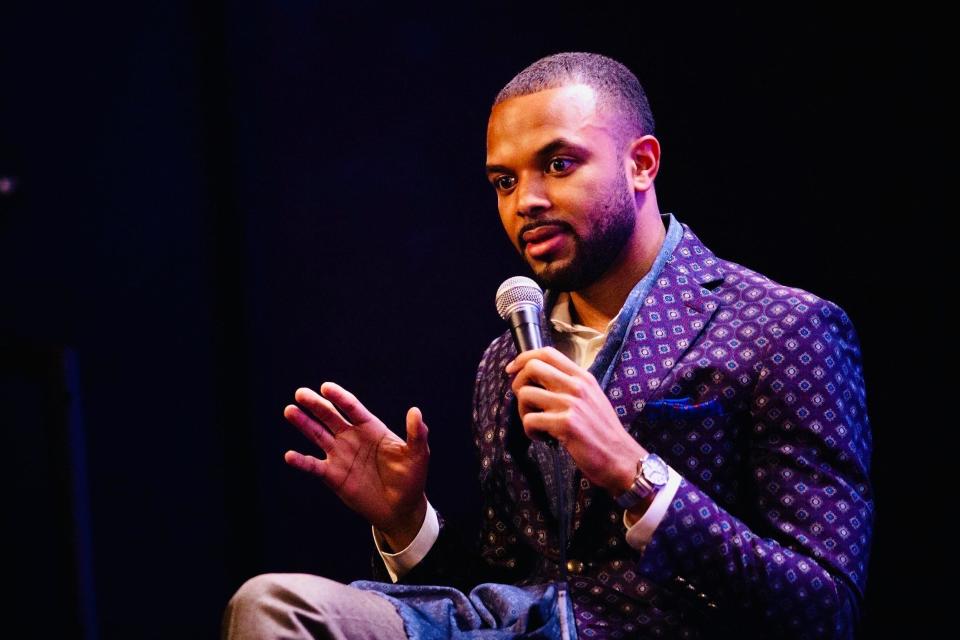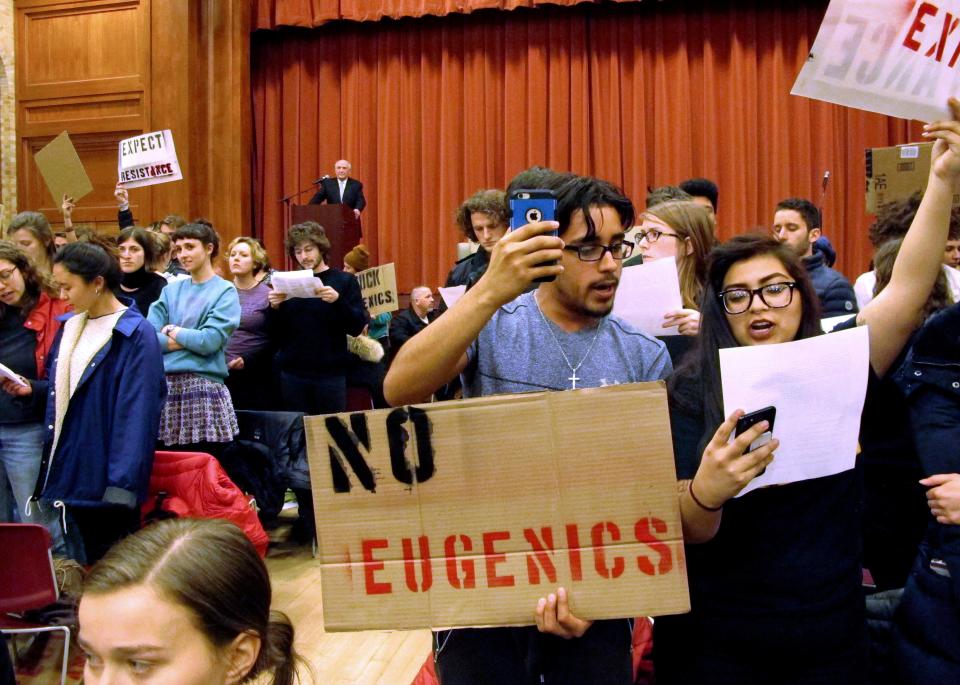In California: Kobe's luxury helicopter lacked warning system and black box
Kobe Bryan's helicopter was the "Cadillac Escalade" of choppers, loaded with extras, but not, as it turns out, a terrain warning system. Bernie Sanders rises to the top of contenders the week before early voting gets underway here. And 11 African wild pups, endangered, are born in the desert.
It's Arlene, with news for Tuesday.
But first, should the NBA change its logo to a silhouette of Kobe? Two million people think so.
And later, I talk to Zachary Wood, who drew headlines in college when he invited speakers like Charles Murray to campus. Murray, BTW, wrote "The Bell Curve," which concludes "America should stop trying to improve poor kids’ material living standards because doing so encourages poor, low-IQ women to have more children," according to Vox.
In California is a daily roundup of news from across USA TODAY Network newsrooms and beyond. Click here for free, straight-to-your-inbox delivery.
Investigators hunt for cause of copter crash
Flying aboard a luxury helicopter with a veteran pilot at the controls, Kobe Bryant and his seven passengers should have had few worries. Their Sikorsky S-76B that would whisk them roughly 90 miles from Orange to Ventura counties was "like the Cadillac Escalade" of choppers, recalled Kurt Deetz, a former pilot for Bryant.
Yet it lacked a key safety feature: a terrain awareness and warning system, TAWS, a National Transportation Safety Board official said Tuesday. The NTSB had recommended it be required on large passenger-carrying choppers after a Texas crash in 2004, but that never happened.
The helicopter also didn't have nor was it required to have a black box. But investigators do have records of radar tracking and communications with air traffic controllers to sort through. So they know on Sunday morning, the helicopter rose to 2,300 feet then began a left descending turn before barreling into a steep mountain slope with such force that it left an impact crater and scattered wreckage over a wide area.
The remains of all nine people aboard have now been recovered from the site, which is being patrolled by sheriff's deputies on horses and ATVs to keep out lookyloos, Los Angeles County authorities said.
More coverage:
Listen: The final exchange between air traffic controllers and the helicopter pilot.
The sports world's long, tragic history with aviation crashes.
Their focus is on getting ready to play in Sunday's Super Bowl. Kobe's on their minds.
From Hollywood celebrities to loggers
You're traveling. Coronavirus has you concerned. Where on the plane should you sit?
Hollywood A-listers are giving big to those who would challenge President Trump. So who are they supporting?
Loggers wanna log, and the Trump administration appears to be helping get them there in states including California, emails suggest.
At Joshua Tree National Park, which draws more and more visitors, what does sustainable tourism look like?
Buoyed by Latinos and the left, Sanders shoots to top
Vermont Sen. Bernie Sanders has taken the lead in the race for the Democratic presidential nomination among California voters, according to the latest UC Berkeley Institute of Governmental Studies poll, conducted for the Los Angeles Times.
Supporting Sanders are voters who label themselves "very liberal," about one in three Democratic primary voters in the state, Latinos and young voters. The poll finds 26% of voters likely to take part in the state’s March 3 Democratic primary will be casting a ballot for Sanders.
That's up from November, when Sanders and Massachusetts Sen. Elizabeth Warren were pretty close. Now, Warren's got 20%, compared to 22% in November and 29% in September.
What else we're talking about

An exhibit of Chinese American history, from the Gold Rush to today, opens at the California Museum in Sacramento.
Antiques Roadshow fans, perhaps you've heard about Queen Anne and her furniture. But you want to know more. A Palm Springs antiques dealer has the tea.
Former San Francisco Giants coach Dusty Baker is headed to Houston. The Astros made the right pick (Opinion).
What I'm listening to
"Gimme Shelter: The California Housing Crisis Podcast." This one focuses on the impact corporate ownership and shell companies are having in a state desperate for housing inventory and what happens next for members of Moms 4 Housing (spoiler: They're returning to the house they illegally moved into, this time legally).
Endangered African dogs born in California desert

African wild dogs, endangered because of diminished habitat, susceptibility to disease and hunting, just expanded their population. Over the weekend, Beatrix and Kiraka gave birth to 11 healthy puppies in a Palm Desert zoo.
“Beatrix appears to be relaxed and comfortable with her new arrivals, and things are progressing as expected," said Allen Monroe, president and CEO of The Living Desert Zoo and Gardens.
These births followed specific recommendations of the African wild dog Species Survival Plan, a cooperative breeding program through the Association of Zoos and Aquariums, which enables a healthy, genetically diverse and self-sustaining populations of species in human care.
There are fewer than 5,000 African wild dogs left worldwide.
Where black and white Americans meet
Zachary Wood, 24, made headlines while a student at Williams College, where his picks as president of a speakers group often drew outrage. It started with his very first choice: Suzanne Venker, who claims women are waging a war on men by straying from their original role.
He wrote about that and more in his book "Uncensored: My Life and Uncomfortable Conversations at the Intersection of Black and White America." On Wednesday and Thursday, he'll make appearances at the sold-out Rancho Mirage Writers Festival. The annual gathering draws writers across spectrums, this year to talk the 2020 election.
Wood, who lives in Washington, D.C., is currently the Robert J. Bartley Fellow at the Wall Street Journal and says he draws his biggest inspiration from Bill Clinton. We talked via email. Answers have been edited for length and clarity.

A central message of yours seems to be, we need to listen to people, even (especially) people we disagree with. That seems like something that should be easy to do, but it isn’t, is it.
It's difficult for people because human beings are naturally self-interested. We all want to survive, feel and be secure and happy, and fulfill our goals and desires. So we have interests and preferences. When we feel threatened, we generally respond in roughly similar ways. So I think we have to deliberately, intently try, especially when it's tough, to listen to people. None of us are simon-pure. Everyone wants to feel seen, heard, and if possible, understood.
In college, you led a group called “Uncomfortable Learning.” What made you want to get involved and become its president?
I wanted to challenge myself. I wanted to make waves. I wanted to build rapport and tackle the toughest topics. I wanted to make a difference, and gain a deeper understanding of humanity by connecting with people completely on the level.
How did you choose speakers?
I had three criteria: 1) Are they intellectually serious? 2) Are they socially relevant? 3) Do I believe inviting them could be a fruitful event?
Now, I wanted to joust with all of these speakers — intensely, but before and in addition to forcefully prosecuting the case against them, I wanted to learn from them.
I believe we can learn from our opponents, even our enemies, just as we can learn from our mistakes. And I believe we should try to. It'll make us stronger, and hopefully, better prepared to work together.
In your Ted talk, you mention inviting Charles Murray, who argued in his book “The Bell Curve” that African American and Latino people were less intelligent than whites based on certain genetic traits; and John Derbyshire, who wrote about avoiding spaces with African American people to stay safe yet join forces with a "small supply of intelligent and well-socialized blacks." What was your goal in bringing them in?
I had a few goals. First, to test, strengthen, and sharpen my intellectual defenses against all of my intellectual and political opponents. Second, to try to build empathy by extending it even to people with whom I deeply disagree. Third, I wanted to gain valuable experience in managing conflict, figuring out what really makes people tick.
My favorite athlete, Kobe Bryant, who just passed, always confronted his fears head-up. And I will continue standing up and doing the same.

Though the invitation for Derbyshire was rescinded, Murray spoke and you two got together. You mentioned you got to understand him better. Can you expand?
I gained a deeper understanding of his position, and of his understanding of his position. The two are not always the same. Our conversation was pleasant.
What I gleaned from it was that we both want America to grow stronger. However, our visions of what a stronger America looks like differ vastly.
I believe a stronger America achieves a more just society by working together and fighting racism, sexism, and other forms of injustice. He believes a stronger America achieves a more just society by strictly, severely limiting the role of government.
What will you be talking about in Rancho Mirage?
I'll be discussing some of the major themes and lessons the book covers, such as race and dissenting opinions, building common ground, and having tough conversations with people with whom we have substantive differences. And I'll also put a bit of it in the context of the 2020 election, who's in, who's out, why and how my message relates.
You wrote in a New York Times editorial that “It’s nearly impossible to rise without other people helping you pull yourself up.” What role do you see for yourself in that space?
I've always wanted to pay it forward. Right now, most importantly, I want to be the best role model I can be for my little sister. She is 16 and she is the most important person in the world to me. I love her to death. One day, I hope to also pay it forward by being the absolute best father and husband I can be.
Professionally, I aspire to pursue a career in public service, and in that capacity, do everything in my power to give people a chance to have better stories.
In California is a roundup of news from across USA TODAY Network newsrooms. Also contributing: Los Angeles Times, National Geographic, The Guardian, NPR, CalMatters, Vox.
Who are outstanding California women who have inspired you? Learn more about our Women of the Century project here and then make your nomination here.
This article originally appeared on USA TODAY: Kobe, Bernie Sanders, Joshua Tree, African wild dogs: Tuesday's news.

